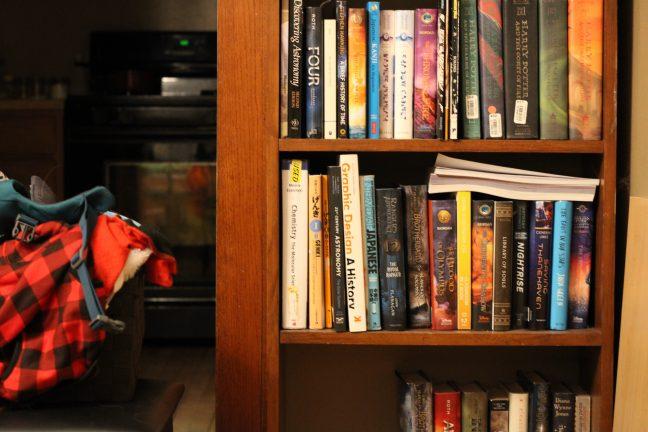The Madison School District announced a plan Feb. 10 to return elementary students and staff to in-person learning.
The first day of in-person instruction for kindergarteners will be March 9, and first and second graders will return to school March 16, according to the Cap Times.
A letter from Madison Teachers Inc. discouraged educators from supporting an early return to in-person learning due to low numbers of vaccinated individuals, health disparities and unsafe COVID-19 case numbers in Dane County.
https://badgerherald.com/news/2021/02/19/covid-19-daily-updates-cases-decline-at-uw-wisconsin-dhs-to-invest-in-promoting-health-equity/
In the letter, MTI asked for assurance they would quickly receive COVID-19 vaccinations. They also asked for the district’s explicit reasoning for reopening.
The Department of Health Services (DHS) announced on Feb. 22, however, that teachers will become eligible to receive the vaccine starting March 1. The timeline for teachers to get their shots varies depending on the school district, according to The Milwaukee Journal Sentinel.
According to University of Wisconsin Pediatrics Professor James Conway, vaccinating all teachers would be optimal, but may not be essential if mask mandates and adequate testing throughout the community are implemented to protect teachers and other staff.
“Vaccination is not necessarily required in order to maintain relatively safe conditions within schools,” Conway said.
According to Conway, most infections don’t occur in school, but in the general community.
According to the American Association of Pediatrics, school transmission mirrors, but does not drive, community transmission, and community-wide approaches are necessary to keep infection rates low.
Economist Emily Oster of Brown University found that for 200,000 students and 63,000 staff across 47 states, the infection rate when returning to school was 0.13% for students and 0.24% for staff.
According to the DHS, more than 1.4 million vaccines have been administered as of Feb. 28.
In the letter, MTI also said they would not support the district’s reopening plan if it was influenced by the Republican Joint Finance Committee’s plan to increase funding for in-person schools.
According to the Associated Press, Wisconsin Republicans claimed science supports putting kids back in class and it’s time to reopen after a year of struggling through the COVID-19 pandemic, and they decided to shift federal aid to schools that offer in-person instruction.
Former Wisconsin Gov. Scott Walker’s Act 10 Bill limited collective bargaining for teachers’ unions by requiring an annual certification election of the labor organization representing each collective bargaining unit.
According to the Public Health Madison & Dane County website, cases are relatively low in Madison. Madison’s new daily COVID-19 cases are now at an average of 88, down from a 277 in November.
Still, many teachers, staff and families are worried about returning to in-person schooling. According to the Wisconsin State Journal, Madison families are split on whether students should return to the classroom during the COVID-19 pandemic and one-third of Madison School District staff indicated they would not return.
A science teacher in the Madison School District said he has mixed feelings about returning to in-person teaching this spring. He said it is reassuring that he is now eligible to receive a vaccine before re-opening, expressing concern about asymptomatic students spreading COVID-19.
“As a scientist, I love experiments,” he said. “I am just not used to being the experiment.”
Nevertheless, the teacher said schools provide vital physical and mental health services, which is the main incentive to reopen schools.
According to Conway, reopening schools is crucial to students not just for education but also for learning life skills.
“Kids are really suffering,” Conway said. “School is where a lot of kids get all their meals, it’s where they learn to be social and work and play with others and follow instructions.”
UW associate professor of Population Health Sciences Ajay Sethi said each school has unique challenges and the success of schools opening in Madison is dependent on community cooperation.
“You can operate K-12 safely,” Sethi said, “The question is, can that be done at every school in the country?”
According to the CDC, Multisystem Inflammatory Syndrome in Children is a condition where multiple organ systems become inflamed, and on rare occasions it has killed children infected with COVID-19.
Conway said COVID-19 is not inherently dangerous for students.
“Kids tend to be less ill with the acute infection than adults and can fight it off more briskly,” Conway said. “In fact, the biggest problem we have with kids is the MIS-C disease, where their immune system goes overboard.”
Madison West High School teacher Gary Powell said some students need to establish deep connections with teachers to be successful, and online schooling has made this more difficult.
Powell said online learning has created major attendance problems.
“We are literally missing kids and don’t know where they are, and it is hard to get a hold of them,” Powell said.
In-depth guidelines on the re-opening of schools can be found on the CDC’s website.


